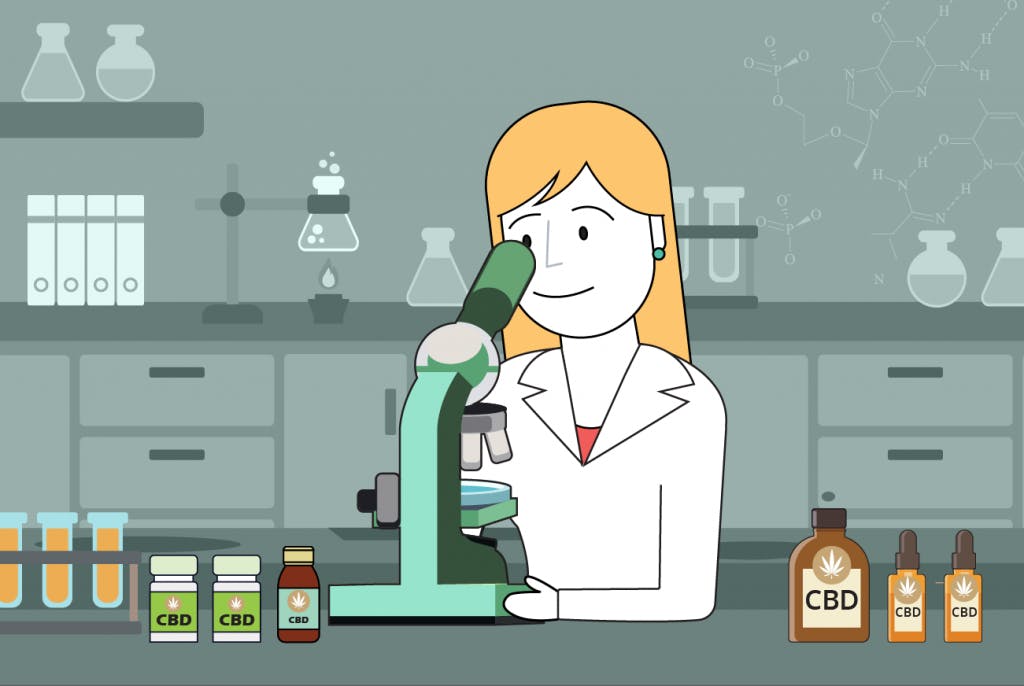You may have noticed that CBD’s popularity is on a steady path of growth. In fact, by the time you finish reading this post, its popularity will have flourished even more. Cannabidiol (CBD) is creating a serious buzz among consumers focused on healthy living, and its ubiquity is starting to take shape, as it shows up everywhere and in everything. It is being marketed in an array of products from lotions to capsules, to consumables like water or honey, to even pet products. CPG brands are igniting acceptance, as they’ve seen the public interest and the potential of the product.
But consumers and brands are only one side of the CPG/CBD equation. “Natural and specialty brick-and-mortar stores represented about 14 percent of the $190 million in U.S. hemp-based CBD sales in 2017, according to Hemp Business Journal. By 2022, those stores are projected to account for 28 percent of the $650 million sales.” 1 https://www.newhope.com/products-and-trends/cbd-retail-need-knows
For retailers, it’s imperative that you, too, know what you’re getting into if you’re stocking CBD products on your shelves, in order to protect your business and your consumers. Here are three points to consider in the face of this latest high-flying product.
1. Do Due Diligence. CBD oil is still illegal at the federal level, and, “the Federal Food, Drug, and Cosmetic Act prohibits adding even approved drugs to human or animal food in interstate commerce.”2 https://www.washingtonpost.com/business/2019/06/24/cbd-infused-food-beverages-are-still-illegal-under-us-law-so-why-are-they-everywhere/?utm_term=.f4f81ab1e5fd Hemp was legalized in 2018, but hemp-derived cannabidiol, the article goes onto explain, is still in “limbo.”3 https://www.washingtonpost.com/business/2019/06/24/cbd-infused-food-beverages-are-still-illegal-under-us-law-so-why-are-they-everywhere/?utm_term=.f4f81ab1e5fd Why? Because the FDA is trying to understand the effects CBD has on a person’s body, what cumulative exposure could mean for a person, how it affects people at various stages of their lives, and the safety of using it on animals. As of today, the products you stock should come from the plant source outlined in the 2014 Farm Bill: industrial hemp-derived, full-spectrum hemp oil. This means it contains less than 0.3 percent THC. It also means no CBD isolates. 4 https://www.newhope.com/products-and-trends/cbd-retail-need-knows
What’s more, while the FDA acknowledges that there are some products with CBD added in, or label CBD as a dietary supplement, they note that it’s illegal to market CBD as such.5 https://www.fda.gov/consumers/consumer-updates/what-you-need-know-and-what-were-working-find-out-about-products-containing-cannabis-or-cannabis
Knowing that the CBD landscape is so topsy-turvy, and there may not be a ruling anytime soon (probably not until guidelines are drafted, which could take years), retailers need to decide if selling CBD-infused products are worth it to their bottom line. If they are, then it’s imperative for retailers to do their research, and make sure the products aren’t crossing state lines.
2. Understand the Market. CBD products can be a bit controversial, so if a retailer is committed to selling them, then that retailer needs to decide how their existing customers will react to CBD products and how to sell the products to consumers. There are certainly going to be some similarities in how a retailer would market to consumers who have a focus on health and wellness.
“Retailers selling CBD products likely seek to attract consumers with disposable income intent on pursuing trendy health and wellness products that fit natural, additive-free lifestyles,” notes Grocery Dive.6 https://www.grocerydive.com/news/retailers-see-opportunities-to-promote-cbd-products/545384/ But CBD products bring with them an almost-cult like following that is eager for new and more products. Retailers will need to figure out how to engage both of these groups. What’s more, since there are so many legal rules around selling CBD products, retailers need to be savvy about how they’re marketing the products to ensure they’re hitting the mark.
3. Educate Consumers. Myriad CBD products on the market today claim health benefits from easing stress to reducing inflammation or even curing cancer. However, like any health product, what’s right for one person isn’t always right for the other and with so much information (and, let’s face it, misinformation) surrounding CBD products, consumer education is key. Specialty Retailer Come Back Daily is doing just that, hosting community events, working with suppliers on sampling, and more.7 https://www.bevnet.com/news/2019/cbd-retailer-aligns-with-brands-emphasizes-education
Should consumers be educating themselves? Yes, of course. But as a responsible business, retailers shouldn’t hesitate to take the lead and have a hand in that education surrounding CBD. Make information easily and readily accessible so consumers know what they’re getting into.
CBD products are poised to explode in the near future, and retailers need to be ready. Similar to the advice to suppliers, be an informed retailer, and your consumers will thank you.
Looking to bring in CBD products onto your retail shelves? Explore trending cannabis products in the CBD Collection on RangeMe.


